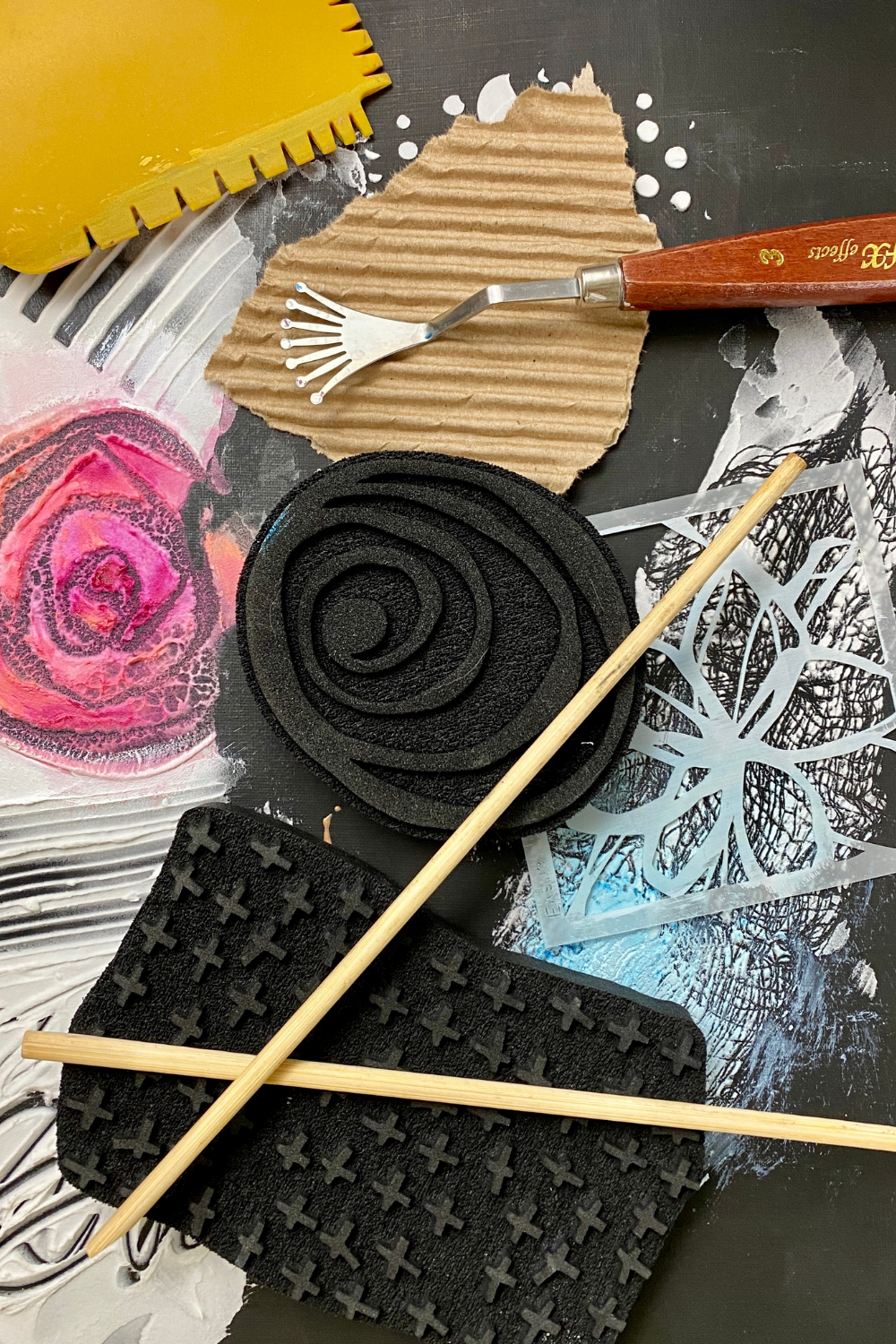Weird but Effective Tricks for Creating Texture in Your Abstract Art
Texture can make a painting more exciting, dramatic, and lush. When you’re planning a painting, don’t forget to plan for texture as you plan out your composition, colors, and focal point.
I have some tips for creating texture that you may not have thought about:
Use Household Objects to Create Texture in a Painting
Take a look around your house and you’ll find many items that you can employ to create texture in a painting—and many of these items can be rescued from a trip to the trash or recycling bin!
Chopsticks or straws
Try holding one or a bunch of chopsticks or straws and then use them to add paint to your canvas or to manipulate wet paint that’s already there.
Cling wrap or wax paper
Ball it up—each of these creates a unique texture. You can also uncrumple the plastic wrap or wax paper and allow the creases to create a vein-like texture.
Bubble wrap
Try pressing some into wet paint. You can achieve different types of texture by pressing softy or more firmly.
Lace
If you have any lace that isn’t precious, you can achieve fascinating textures with it!
The more you keep your eyes open for everyday sources of texture, the more you’ll find.
Create Texture with Painting Tools
Traditional painting tools can be used in fun ways to add texture to your paintings. For example, a wedge tool (such as those by Catalyst). Try taking the traditional wedge and make marks or indentations with the sides of it. Or select one of the comb-like tools to rake through wet paint for drool-worthy texture!
Your painting knife is an incredible texture tool, allowing you to apply paint and move paint in ways that create texture and interest as you make marks. I love using my painting knives in this way.
A dry paintbrush is another secret weapon for adding texture, whether you are applying new paint or creating texture using paint that’s already on the canvas.
Use Paint to Create Texture
You can create show-stopping texture by using heavy body paint. Use your painting knife to apply dollops of heavy body paint, allowing peaks or ridges to form. Once dried, the dimensional effect will make people want to touch your painting.
Stencils are so much fun to use! I suggest taking a stencil that has a relatively small motif (rather than one with big openings) and applying paint onto your work using the stencil. This adds a spot of texture and can have a big visual impact. And from lettering to geometric shapes, you can express your artistic voice through this technique.
What About You?
What are your favorite ways to create texture in a painting?
Did I miss any of your favorite techniques?
I’d love to hear your thoughts in the comments below!
***This blog post may include affiliate links, which means I may get a commission if you purchase. However, none of the fees of these resources have been increased to compensate me. When possible, if special discounts are provided to me, I extend them to you!






